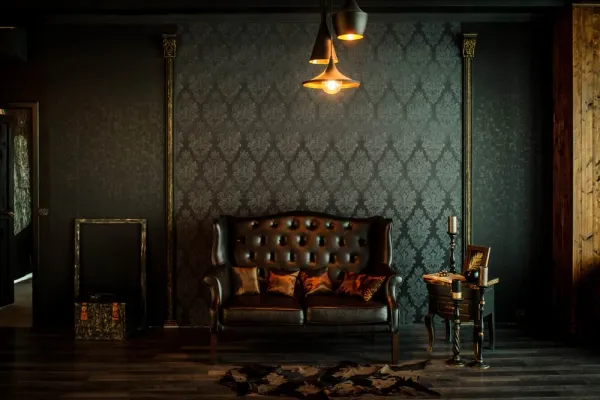Decluttering your home can be an excellent feeling.
It can be therapeutic.
And it can also help you make a great first impression if you are trying to sell your house.
Please keep reading to learn about the process and benefits of decluttering your home.
Create a plan
Planning the decluttering process can save time and energy.
You should first decide the order of the rooms you will work on.
Starting with the smallest spaces can warm you up and begin the process positively.
The next step is to decide a system for decluttering. There are several different schools of thought here. For example:
- The ‘last used’ rule. You could pick a timeframe in which you must’ve used an item – and if it doesn’t meet it, you must get rid of it
- The 12/12/12 system. This popular method involves throwing away 12 items, donating 12 items, and keeping 12 items
- The 20/20 rule. This means removing items you can replace for £20 in under 20 minutes.
- Time per room rule. You can add a time limit for decluttering each room. This will prevent you from getting stuck in one area and motivate you to complete the task quickly.
Clear surfaces (& put away objects)
One of the most straightforward steps to decluttering is clearing your surfaces.
This is especially important in the kitchen and bathroom. Counters and work surfaces often have objects that could be put away in cupboards, wardrobes, cabinets, etc.
The objects in question can vary widely. Toys are common for households with young children or pets.
Hobbyists might leave out commonly used objects such as paintbrushes, boardgames, machine parts, etc.
Make sure that items work
Decluttering is a great way to audit what works and doesn’t work. This applies to:
- Lights
- Tools
- Kitchen appliances
- Televisions
- Utensils.
And much more.
Many may have been sitting in a drawer for several years without anyone noticing.
If you find something that no longer works, decide whether it’s worth repairing, replacing, or disposing of.
Don’t be afraid to let go…
Feeling sentimental about things you have collected over the years is common.
As you examine each object, consider your attachment to it carefully. If you are unsure, delaying your decision might be necassary.
After all, regret for irreplaceable possessions is a negative emotion best avoided.
However, there could be many instances where you realise objects aren’t as unique as you previously thought. You might hoard them in anticipation of a value that hasn’t materialised.
Where to dispose of old possessions
Clothes that you haven’t worn in a long time can go to charity shops.
Functional appliances that you don’t need can be online in places like Facebook Marketplace.
Books you don’t read can be given to charity shops of (if you aren’t in a rush to get rid of them) sold on websites such as Amazon.
Major furniture that is broken should be taken to the dump. (Make sure you follow all correct procedures for this).
Many objects can be sold or given away in a ‘yard sale’ type set-up. You can place the objects outside your home with an honesty box and price labels.
Your neighbours and passersby can then browse and (hopefully) buy them.
Check whether storage space is utilised
You should utilise all the storage space available in your house.
Go down to your basement or climb up into your loft. Decide whether you can fit more objects in there.
While this option is not designed to encourage hoarding, it is useful.
It could be a temporary solution if you have a house viewing in the next few days. Or you can hold items there while they are listed for sale online.
Have extra rubbish bags at the ready
Most homeowners are surprised at how many things they remove from their house during decluttering.
You should thus prepare by having extra rubbish bags ready. This ensures that the process isn’t slowed down by lack of resources. You can keep your momentum up.
Get help from a friend
It takes work to declutter a house by yourself.
If you live alone, help from a friend or family member is extremely useful.
It will often result in a faster decluttering process. The job will be done better because you can bounce ideas off each other.
A second perspective is always useful. One person might spot or think of something that the other did not.
Dedicate a day to your garden
If you have a garden that needs decluttering, you may need to designate an entire day for this.
You will be surprised at how many things you find in the space.
Broken paving slabs, unused plant pots, killer weeds, and many useless items in your garden shed are all common.
Timing is essential for this task, especially in the UK. Wait until it’s a nice day outside, if possible…
Benefits of decluttering your house
Most people declutter a house because they plan to sell it in the near future. It’s an important part of the staging process (both for in-person visits and photos for listings).
It gives a great first impression for potential buyers visiting your house. And showing your property in its best condition is always ideal.
It is often said that ‘a clear house is a clear mind’. In other words, a decluttered house is often associated with reduced stress and improved mental health.
Finding enough objects to sell could also provide a nice financial benefit.
















